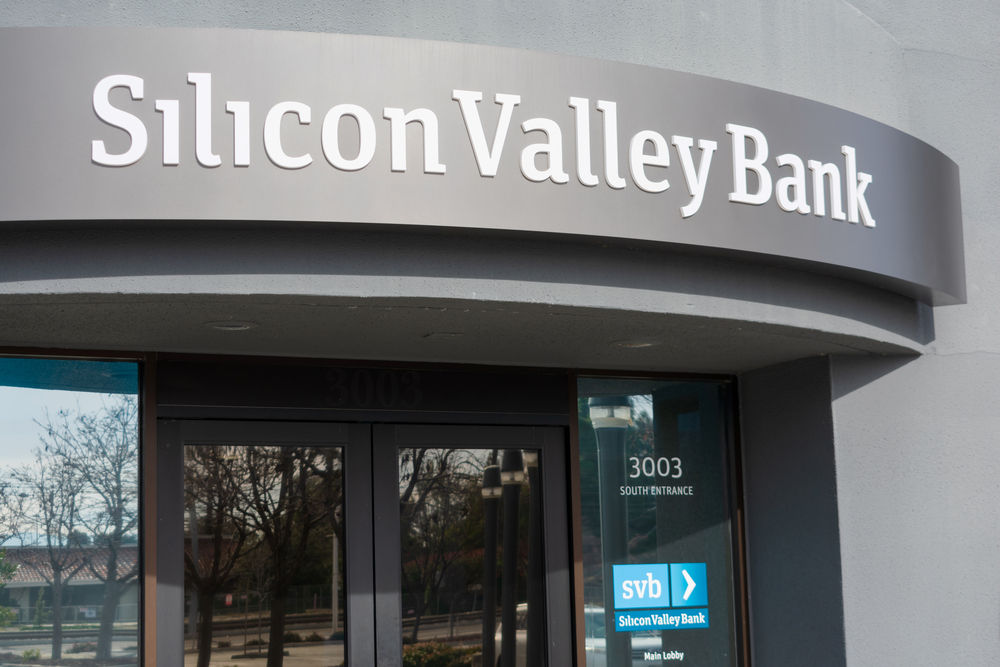Tether (USDT) and USD Coin (USDC) prices maintained their pegs in one of the worst weeks for cryptocurrencies and tech companies. USDT was trading at $0.999 on Friday while USDC price was also trading at the same level. The two have a market cap of $71 billion and $48 billion. The main concern for these stablecoins is that crypto-focused banks are plunging.
SVB and Silvergate Collapse
The biggest story of this year is happening at the moment. In the United States, shares of key banks like Silvergate Capital, SVB, and First Republic are all having a major meltdown.
Silicon Valley Bank’s parent company, SVB, saw its stock price plunge by more than 60% on Thursday. It also crashed by over 60% on Friday before the shares were halted. Most importantly, an index that tracks regional bank stocks has plunged by more than 11%.
Silvergate Capital, a bank that focused on crypto companies, announced that it will liquidate its business. First National Bank, which also banks for cryptocurrencies, crashed hard. A key issue in the financial sector is that bonds, which are usually high secure, have been trading like penny or meme stocks.
Therefore, investors are concerned about the exposure of stablecoins like Tether and USD Coin to these institutions. For one, these stablecoins are usually backed in fiat currencies, which are held in these banks. Therefore, a bank run could have an impact on the availability of these funds.
Are Tether and USDC safe?
USD Coin has a market cap of more than $48 billion. In its transparency report, Circle said that these funds are only in cash and short-dated US Treasury Portfolio. Cash stands at about $11.4 billion while short-term treasuries stands at over $31.9 billion.
Circle states that its cash is stored at Bank of New York Mellon, the biggest custody bank in the world. BNY is seen as a relatively safe bank. It also uses Blackrock, the biggest asset manager in the world with over $8 trillion in assets. Therefore, while its bonds are seeing volatility, we can easily assume that USDC assets are safe.
Tether’s USDT also appears to be safe if its financial statements are to be believed. They are audited by BDO, one of the biggest audit companies. The most recent report shows that most of Tether’s reserves are in cash and cash equivalents. Those cash equivalents include US Treasury bills, money market funds, and cash in banks. The latter cash in banks is about 9.66% or about $6.8 billion, meaning that Tether can cover significant outflows.
Read more: How safe is Tether?












